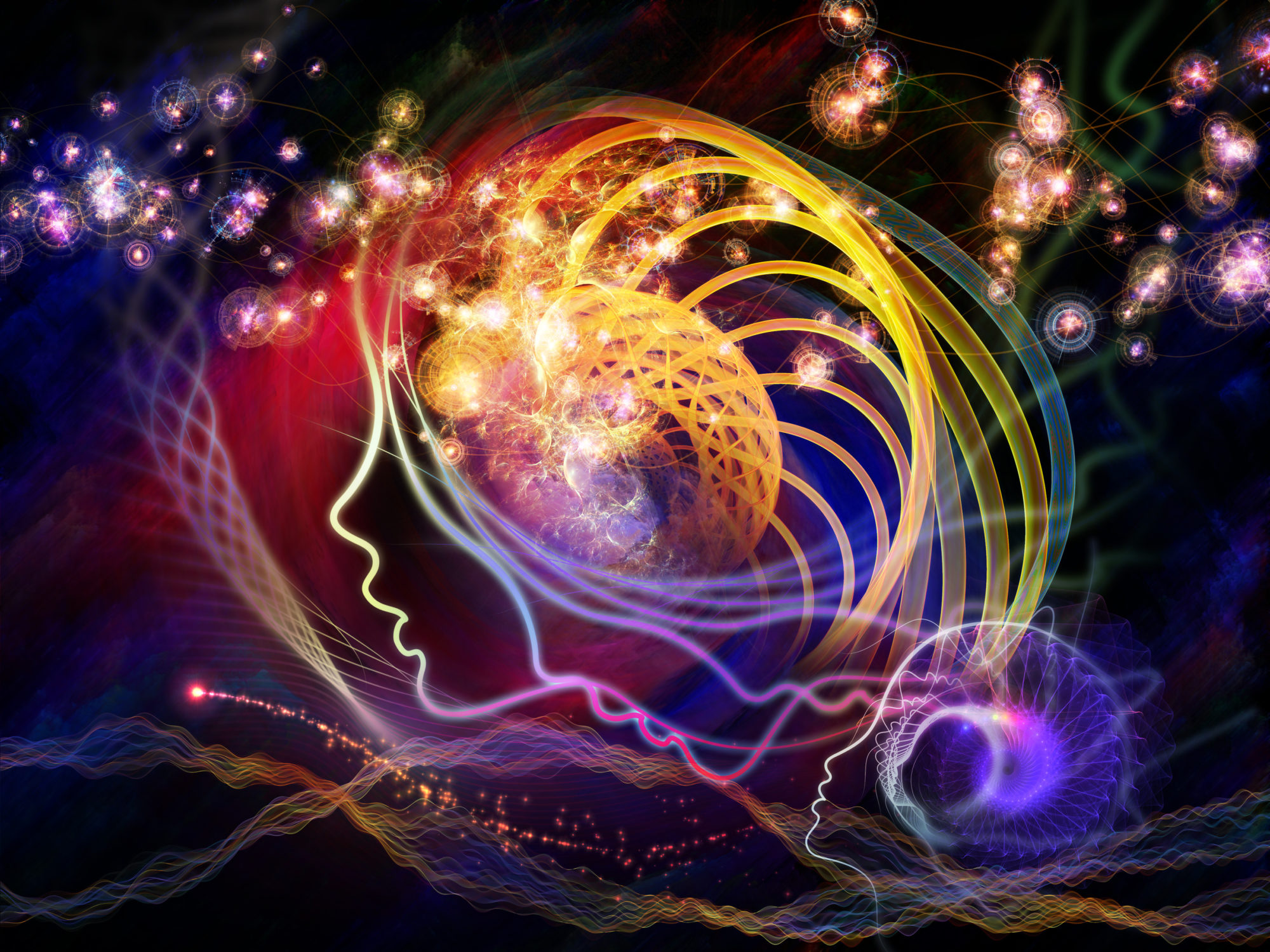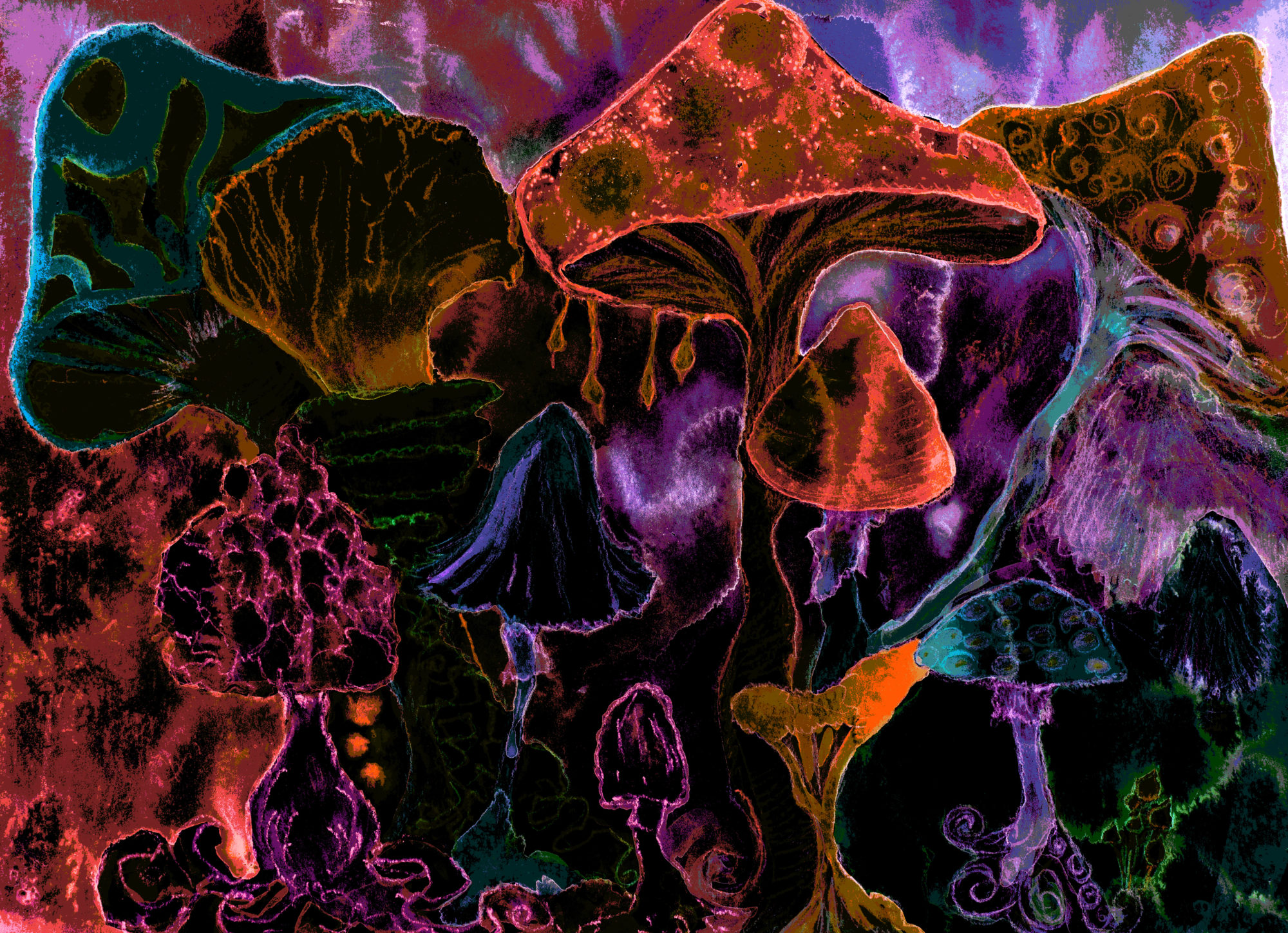
The rise of psychedelics in Utah
For most of his life, Steve Urquhart thought he had all the answers. The former conservative Utah state lawmaker spent 16 years fighting for legislation that espoused the ethos of the Church of Jesus Christ of Latter-day Saints. Then, in 2016, he broke down. Urquhart became crippled by anxiety, depression, and doubt about the worldview through which he built his life.
Then, he found mushrooms—magic mushrooms, that is. Now, the once high-profile Salt Lake City lawmaker who spent his life thinking he truly knew God professes the profound religious experiences he’s found through psilocybin, a mind-altering compound produced by many species of mushrooms. Those experiences were so life-changing they led him to start a church called The Divine Assembly, where the primary sacrament is psychedelics.
Urquhart is part of a broader movement of “Mormons” who have left the church and turned to mushrooms to find God. Like other religions, the LDS Church has witnessed a declining growth rate since 2012—no greater than two percent since 2013. In general, more people are leaving organized religion to find spirituality on their own terms, according to research by Diana Butler Bass, the author of “Grounded: Finding God in the World, A Spiritual Revolution.” The spirituality and wellness industry has also blossomed since the pandemic.
“The most significant story in the history of religion at this time is not a decline in Western religion, a rejection of religious traditions or the growth of religious extremism; rather, it is a changed conception of God, a rebirthing of faith from the ground up,” Bass writes.

Now, combine that trend with the explosion of MDMA, LSD, and magic mushrooms in the mainstream. Psilocybin and psychedelics have seen a resurgence in recent years, with Ayahuasca journeys depicted in movies, books, podcasts, and Netflix documentaries extolling the virtues of psychedelics. In Silicon Valley, startup executives are microdosing LSD and magic mushrooms. In Hollywood, celebrities are smoking frog venom.
Meanwhile, a stream of medical research shows promise for psychedelics to treat depression, anxiety, and trauma. Startups like TripField are opening ketamine clinics across the country. In 2018 and 2019, the Food and Drug Administration designated psilocybin a breakthrough therapy for treating drug-resistant depression and major depressive disorder. Trials are underway for psilocybin treatment for depression and MDMA treatment for PTSD, and the FDA approved Spravato—a Johnson & Johnson nasal spray derived from ketamine—to treat depression.
In the last few years, Denver, Oakland, and Washington DC have decriminalized psilocybin, and supervised psilocybin therapy will be legal in Oregon next year.
Studies have also started to explore the mystical and religious experiences of psilocybin, although the drug can also cause unwanted paranoia, flashbacks, and nervousness. Not surprisingly, a number of churches like Urquhart’s have popped up across the country around the use of psychedelics, including a church called the Sacral Tribe in Denver run by a rabbi and the Soul Quest Ayahuasca Church of Mother Earth in Orlando, which runs three-day healing Ayahuasca retreats.
The Supreme Court ruled in 2006 that religious organizations can use these drugs legally in worship services. Still, the public attention around The Divine Assembly’s use of psychedelics is unnerving, Urquhart says. “It’s scary to be first and to be early.”
And despite the Supreme Court’s ruling, churches are not foolproof: Oakland police raided the Zide Door Church of Entheogenic Plants in 2020, calling in firefighters to open safes and seize the organization’s magic mushrooms.
The Divine Assembly claims some 3,000 members—there are no fees to join, and people simply sign up online—and most of them are former Mormons. The group has had a few sacrament ceremonies over Zoom and during in-person retreats that include camping, art, and music.
“I think it’s really growing,” says Mike, who declined to use his last name. He started a podcast called Mormons on Mushrooms with his college friend Doug to help people “heal” from religious trauma and explore the universe. Started just over a year ago, the podcast has about 10,000 listeners each month and a Facebook group of 1,500 people.
Mike, who lives in Los Angeles, left the LDS Church ten years ago. Only after taking mushrooms, Mike says, did he find joy, peace, hope, and a deep connection to spirit and himself. “There is something about psychedelics that is a tool for Mormons who grew up with strict, rigid structures where you’re in your head all the time and not in your body,” he says.

Doug says psychedelics helped him find a mindfulness practice and a greater sense of compassion for all people. “So many people like me are dealing with this deep, toxic shame of being a human and not living up to some third-party about how you should live your life,” he says.
Urquhart purposefully chose to adopt no overarching doctrine or rules for The Divine Assembly with the intent to only “create a safe space” for people to experience the divine through psilocybin ceremonies. Before starting the church last year, Urquhart did create simple rules and ethics around the worship to ensure this safety—members must remain fully clothed during the ceremonies, for example—and he’s in the process of bringing in individuals who are certified in psychedelic-assisted therapies to manage the ceremonies. The Divine Assembly is also working to help first responders dealing with PTSD and people dealing with terminal diagnoses.
Humans have used mind-altering sacraments—including psychoactive mushrooms—as a form of divination for ages, according to the Netflix documentary “Fantastic Fungi.” The documentary explores research on transcendence and experiences reported during psilocybin sessions.
In his best-selling book “The Immortality Key,” author Brian C. Muraesku theorizes that ancient Greeks and Christians participated in rituals by ingesting mind-altering drugs. Some even speculate that the LDS Church began with a psychedelic experience by founder Joseph Smith.
Idaho emergency room doctor Robert Beckstead wrote a 35-page paper on the topic a decade ago, suggesting that Smith used “entheogen-infused sacraments to fulfill his promise that every Mormon convert would experience visions of God and spiritual ecstasies.” The paper points to such evidence that these plants were found in each area where the Smith family lived, and that Smith was mentored by people skilled in esoteric fields.
Author Cody Noconi’s new book “The Psychedelic History of Mormonism, Magic, and Drugs” lays out a theory that Smith may have laced sacramental wine with psychedelics. Noconi points to the 1836 Kirtland Temple dedication, in which 500 people took the sacrament with Smith, and most saw “visions of angels.” Noconi is working on a television series about the alleged psychedelic history of the LDS Church with Brandon Crockett, the author of the forthcoming book “Mormon on Mushrooms.”
Crockett has a similar story of leaving the LDS Church and turning to psychedelics. Five years ago, he and his wife left the faith and began experimenting with psychedelics, even moving to Australia for a time. During his drug-altered experiences, Crockett has seen Hindu goddesses, received an invitation to visit the underworld, found himself in the womb and at the center of the universe, and more. “People are looking for self-guided religion,” he says.

Crockett became interested in the connection between the church’s founding story and psychedelics after watching a YouTube video in which famed mystic Terence McKenna described his initial experience of being under the influence of Ayahuasca as “the sound of rushing water.” The line sounded familiar to Crockett, who had learned while growing up in the LDS Church that Smith once said the voice of Jehovah was like “the sound of the rushing of great waters.”
The speculation that a church that bans all forms of intoxication may have actually started with psychedelics may be a big issue, but the LDS Church remains a stalwart for now. Sixty-seven percent of Utah’s population identifies as a member of the LDS Church, and the state is home to 16 LDS temples. The church owns as many as 8,590 companies and has more than $100 million in assets. For decades, the LDS Church has also influenced public policy in Utah—like prohibiting grocery stores and restaurants from selling beer that contains more than five percent alcohol—and more recently steering medical marijuana legislation in a more conservative direction.
Urquhart himself was once a part of that conservatively-minded political machine as a devout LDS Church member. In 2006, he cast one of five votes against a hate crimes law, championed school vouchers, and sponsored legislation to repeal progressive immigration laws.
In his final years as a legislator, Urquhart switched his stance after watching how the state’s predominant culture treated his teenage daughter when she came out as queer and became active in the LGBTQ community. “I put names and faces to the issue and realized this wasn’t a political issue—it was a human, civil rights issue,” he says, “and I was on the wrong side of it.”
Urquhart went on to champion LGBTQ rights and the state’s anti-discrimination law, back the state’s medical marijuana law, and propose a moratorium on the death penalty. He battled the LDS Church on many of those issues. “I saw up close the incredible power that the church has,” he says. For this article, officials from the Church of Latter-day Saints declined an interview.
Now, as the founder of The Divine Assembly, Urquhart is using the same religious legal protections to ensure he and others can perform self-guided worship. “I’m in a position where I can stand up and make it a safer place for other people,” he says. Podcast co-hosts Mike and Doug say they don’t believe Urquhart wants to be a new prophet or create a new religious creed. In fact, one of the few church rules insists that “there are no gurus.”
Urquhart couldn’t agree more. “Everyone can commune directly with the divine,” he says. “You don’t need anyone else to tell you how to do it.”

